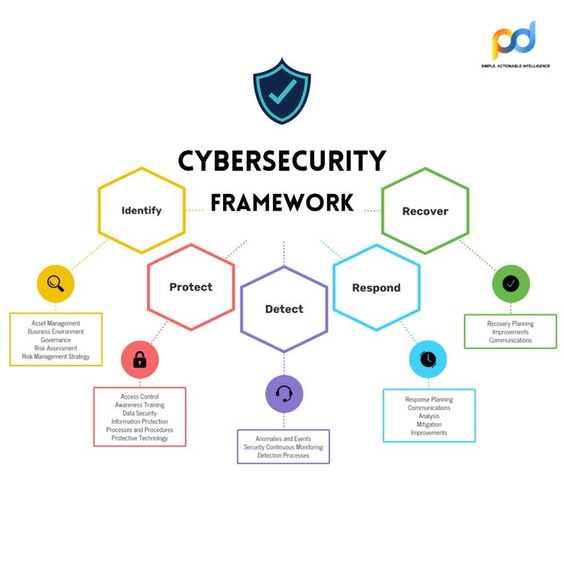In today’s digital world, cybersecurity threats are a real and constant danger to businesses of all sizes. From data breaches to phishing attacks, cybercriminals are always searching for vulnerabilities to exploit. Therefore, it is essential for businesses to have a robust cybersecurity risk management plan in place to protect themselves against these threats. Here is a comprehensive guide to help your business effectively manage cybersecurity risks.
Conduct a Risk Assessment
The first step in managing cybersecurity risks is to conduct a comprehensive risk assessment. This will identify potential vulnerabilities and threats to your business’s sensitive data or systems. A risk assessment will also help prioritize which risks are most critical and require immediate attention.
Develop a Plan
Based on the results of your risk assessment, it’s essential to develop a plan to mitigate risks. This plan should clearly outline the objectives, strategies, and tactics for minimizing potential damages from cyber-attacks. It should also include guidelines on how to react in the event of a security breach.
Educate Employees
Employees play a critical role in preventing cybersecurity breaches. Therefore, it’s important to provide them with regular training and education on the potential risks and how to avoid them. This includes how to identify phishing emails, how to create strong passwords, and how to recognize suspicious activity on their devices.
Implement Security Measures
Once your risks and vulnerabilities have been identified, it’s important to implement appropriate security measures to mitigate these risks. This may include installing antivirus software, firewalls, and encryption software. It may also include instituting policies such as multi-factor authentication and regular software updates.
Monitor Your Systems
Cybersecurity threats are constantly evolving. Therefore, it’s crucial to monitor your systems regularly to detect any suspicious activity. This may include implementing tools such as intrusion detection and prevention systems, security information, and event management systems.
Regularly Review and Update Policies
As your business and technology evolve, so too will your cybersecurity risks. Therefore, it’s essential to regularly review and update your policies and procedures to ensure that they remain effective in mitigating risks.
Work with a Cybersecurity Expert
Managing cybersecurity risks can be a daunting task, which is why it’s essential to work with an expert in cybersecurity. These experts can help identify and prioritize risks, develop mitigation strategies, and provide ongoing monitoring and support to ensure that your business remains protected.
You might find these FREE courses useful
- Cybersecurity Risk Management Framework
- Cybersecurity Risk Management Frameworks
- Introduction to Cybersecurity & Risk
- Cybersecurity Foundations for Risk Management
- Implementing a Risk Management Framework
- The Business of Cybersecurity Capstone
- Cybersecurity Awareness and Innovation
Have a Cybersecurity Incident Response Plan
Despite all efforts to prevent breaches, cybersecurity attacks still occur. Therefore, it’s important to have a cybersecurity incident response plan in place. This plan should clearly outline the steps to take in case of a security breach and include details on who to contact and how to communicate about the breach.
In conclusion, cybersecurity threats are a real and constant danger to businesses, and it’s essential to take adequate measures to protect your sensitive data and systems. Conduct a risk assessment, develop a plan, educate employees, implement security measures, monitor your systems, regularly review policies, work with a cybersecurity expert, and have an incident response plan in place to effectively manage cybersecurity risks. By following these crucial steps, you can significantly reduce the likelihood of a security breach and protect your business from potential damages.
